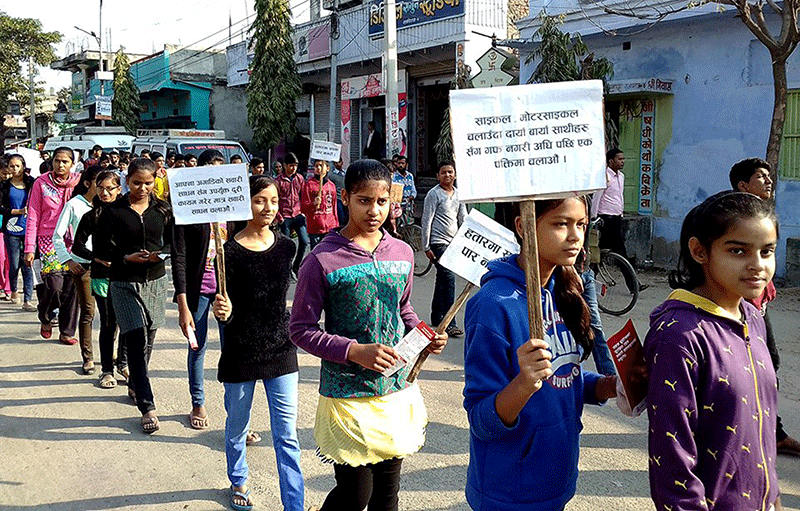‘Juvenile justice laws need to change’
Without follow-up it’s not possible to know whether the delinquent has improved
Kathmandu, July 13
Child rights defenders say laws related to juvenile justice need to be changed to make them compatible with international practices.
Advocate Rabindra Bhattarai said Section 21 of the Child Act — which stipulates that police can take accused juveniles under control and keep them under surveillance — is flawed as it gives power to police authorities to keep juveniles under virtual custody.
“Police often keep juveniles along with accused adults,” he said.
Section 36 (2) of the Child Act stipulates that if a juvenile between the age of 10 and 14 is found guilty of a crime carrying jail term, then he can be sent to jail for up to six months depending upon the seriousness of the crime and, or, be sent to a correction home for up to one year.
Another child rights defender Tarak Dhital said this provision contradicted the concept of juvenile justice.
“Juveniles should be sent to correction homes, not jails, but this provision does not distinguish between jail and correction home,” he added.
Member of Child Justice Coordination Committee Ashish Adhikari said Nepal’s juvenile justice system was not on par with international practices mainly because there was no system to prepare social inquiry and follow-up monitoring of juvenile delinquents.
According to Adhikari, the right approach could be taken by the judge only when social inquiry was possible.
“Social inquiry helps the judge understand what a juvenile delinquent likes and what he/she does not.
This means a judge may not send a juvenile delinquent to parental care if the child does not obey his/ her parents, but under the current system, a judge may not know this,” Adhikari said.
He said all child benches in district courts needed to have one social activist and one child psychologist, but in practice all district courts did not have these trained experts and thus juvenile justice was affected adversely.
Adhikari said laws related to juvenile justice aimed at reforming the juvenile delinquent so that he could be a law abiding citizen in future but as there was no follow-up system, the government was not in a position to know whether the aim of the law was being fulfilled.
Adhikari said child correction homes did not have enough space for juvenile delinquents to play nor did they have place to segregate juveniles of different age groups. “If a child below 14 is kept with juveniles aged 17, this age group could adversely impact behaviour of the child below 14.
Dhital said the existing system did not focus on psycho-social counselling of juvenile delinquents and the need to teach lessons to children right from their families to their schools.
“Society also plays a role in shaping children’s social behaviour, so the government also needs to focus on reforming our social behaviour,” he added.
He said that almost 60 per cent of juvenile-accused faced rape and sexual assault charges. He added that the government should also find whether easy access to pornographic materials on the net was responsible for perverting the minds of juveniles.
“These days juveniles can easily access pornographic materials on the net because of revolutionary changes in digital technology,” he said.






